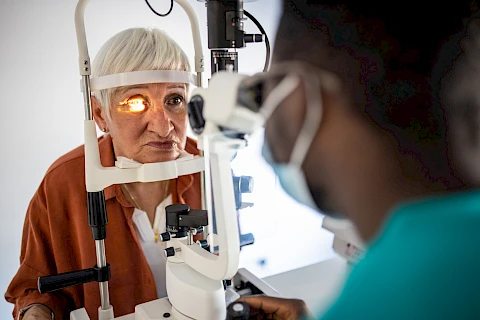
When we age, taking care of our health becomes increasingly important. One area that deserves special attention is our vision, particularly the risk of developing glaucoma. Glaucoma is an eye condition that can lead to irreversible vision loss if not detected and managed early. For seniors with diabetes, monitoring eye health becomes even more necessary, as diabetes can increase the risk of developing conditions like glaucoma. Being proactive about eye health can make a significant difference in maintaining good vision for years to come.
The Link Between Diabetes and Glaucoma
Diabetes can cause various health problems, including those affecting the eyes. High blood sugar levels can damage the small blood vessels in the eyes, leading to conditions like diabetic retinopathy and glaucoma. Seniors with diabetes are at a higher risk for these eye problems, making it essential to keep a close eye on eye health.
How Glaucoma Affects Vision
Glaucoma is a progressive disease that affects the optic nerve in the eye. Over time, it can lead to a gradual loss of vision, often starting with peripheral (side) vision. As the condition progresses, it may lead to tunnel vision or even complete blindness if left untreated. Early on, glaucoma may not present any noticeable symptoms, which is why regular eye exams are vital. Signs to watch for include blurred vision, halos around lights, or loss of peripheral vision.
Early Warning Signs of Deteriorating Eye Health
Recognizing the early warning signs of glaucoma and other eye conditions is necessary for seniors, especially those managing diabetes. Here are some signs to be on the lookout for:
- Sudden or gradual loss of peripheral vision
- Seeing halos or rainbows around lights
- Eye pain or redness
- Blurred vision
- Headaches or eye discomfort
Early detection allows for better management of the condition, potentially preserving vision.
Why You Need Regular Eye Exams
Regular eye exams play a key role in detecting glaucoma early. Eye doctors can perform tests to measure intraocular pressure and examine the optic nerve, helping to identify signs of glaucoma. Seniors should aim to have a comprehensive eye exam at least once a year or more often if recommended by their doctor. Staying vigilant with eye exams ensures that any changes in vision can be addressed promptly.
Tips for Proactively Monitoring Eye Health at Home
In addition to regular eye exams, there are practical steps seniors can take at home to monitor their eye health. Using good lighting when reading or performing activities can help reduce eye strain. Wearing sunglasses outdoors protects against harmful UV rays that can damage the eyes over time. You need to pay attention to any changes in vision and note them down for discussion with an eye care professional. Some seniors find it helpful to use tools like an Amsler grid to regularly check for vision distortion.
Protect Your Eyes
Proactively monitoring your eyes for glaucoma is a necessary part of maintaining overall health, particularly for seniors with diabetes. Understanding the relationship between diabetes and eye health and recognizing early warning signs of conditions like glaucoma can make a big difference. By scheduling regular eye exams and taking steps to monitor vision at home, seniors can protect their eyesight and enjoy their golden years with clarity. If you or a loved one in Fort Collins, Loveland, Greeley, or Longmont need support in managing eye health, reach out to Senior Helpers Greeley.